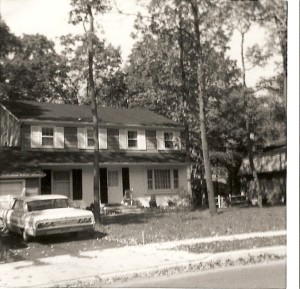New Normal
- By fannieb
- August 27, 2016
- No Comments
 Last night I watched the French film called Blame it on Fidel. When I woke up this morning I felt a strange connection with Anna, the 9-year-old, who was thrown into a lifestyle change she had no control over. She resisted it. Her younger brother, perhaps not so attached to the lifestyle, just went with the flow very easily.
Last night I watched the French film called Blame it on Fidel. When I woke up this morning I felt a strange connection with Anna, the 9-year-old, who was thrown into a lifestyle change she had no control over. She resisted it. Her younger brother, perhaps not so attached to the lifestyle, just went with the flow very easily.
This morning I remembered my resistance to similar events in my life. I was ten when it all began. My father decided, and my mom submitted, against her intuition, that the town we were living in wasn’t “black” enough. To my father that meant that my brother and I would miss out on the black experience and lose our identity as black people. So we moved back to the city of Philadelphia. They moved back, and I moved there for the first time (or so it felt). I was three when we moved to the New Jersey suburb of Cherry Hill in 1970. Then, we were one of only three black families in the subdivision of Wexford Leas.
Cherry Hill, with its designer architected homes sitting on beautiful wooded lots and an elementary school within walking distance, for the entire neighborhood, was idyllic. Our four bedroom, 2 ½ bath, 2500 ft.² colonial was well-planned and inviting. As you stepped into the entryway you were greeted, ten feet away, by a grand staircase with a large landing halfway up that shifted the stairs to a right angle for the final half flight. It was home, all I’d ever known.
My resistance to moving to the city was probably due, in part, to my mom’s hesitancy. I don’t remember if she outwardly expressed her desire to stay put, but I could have very easily picked up on her subtle cues. It turned out that the move would expose big cracks in the foundation of my parents’ marriage and lead to its demise.
Those first seven months of my fourth grade year were not fun ones. My walk to school was long, not the 2/10ths of a mile I was used too. The slate sidewalks buckling under aging tree roots, the city traffic, and crossing major intersections made my trek feel crowded yet lonely. And arriving at school feeling like an outsider was no better.
My elementary school was an imposing, four-story, stone-faced building with a concrete playground and walk-in wood-paneled cloak rooms. Most of my classmates were black children who I felt uncomfortable around, partly because I was the new kid, but partly because I didn’t feel like I fit in. One big reason was my inability to jump double Dutch. I tried my hand at turning the ropes for others to jump and I didn’t have the right rhythm for that either.
I was unhappy at school. And already being shy, I went further inside my shell. At home, I remember a tense air filled our twin, gray stone-faced house at the corner of E. Durham Street. My parents fought behind closed doors, though that didn’t keep me from knowing that their relationship had gone from tense to volatile. And my older brother was even more unhappy than I was. He seemed to get special treatment, being taken to “meetings” on Thursday nights that I was not allowed to go to. On those evenings, I stayed at home with my grandmom.
But my brother’s special treatment only seemed to worsen his mood and propelled him deeper and deeper into a funk. My unhappiness was about missing that beautiful home and scenic neighborhood, the school with the grass and jungle gyms, and the friends I’d made, ones who made me feel I belonged, despite my different skin color. My brother’s sadness was chronic and pervasive; it was clinical depression.
At the end of five months my parents could take no more and my father left, at the urging of my mother. That night, my mom’s 41st birthday, a cloud of tension and animosity evaporated and we, my mom, grandmom, brother, and I, took a collective sigh of relief. Our lives would be changed forever.
After daddy left we went searching for a home across the bridge in South Jersey. We found one, a four bedroom colonial with 2 ½ baths, but it wasn’t in the exclusive Cherry Hill zip code. I was forced to deal, again, with change; my hopes that we would move back to our old house were dashed. I was not happy about it, but there was something lighter and more promising about this move. My mom, brother, and grandmother were happier and the heavy authoritarian dominance of my father was gone. I adjusted more easily, even though I still longed for our old house, my old bedroom, and my old school 20 miles down the highway in Cherry Hill.
 Copyright © 2024
Copyright © 2024
Leave a Reply
You must be logged in to post a comment.